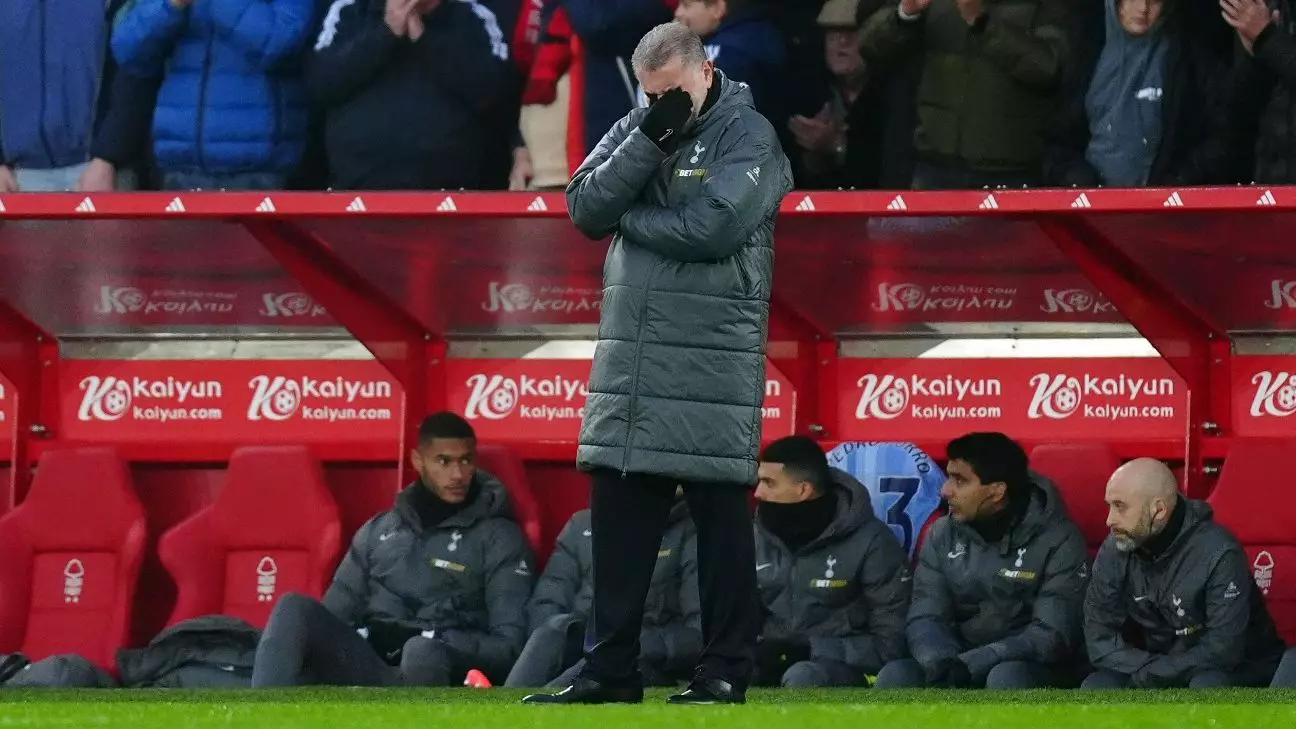Tottenham Hotspur currently finds itself in a precarious position as injuries ravage their squad. Under the guidance of head coach Ange Postecoglou, Spurs have struggled to find form, culminating in a disappointing 1-0 loss to Nottingham Forest. This defeat marked the fourth in their last five Premier League outings, leading to an urgent need for reinforcements. With key players like Cristian Romero and Micky van de Ven sidelined, Postecoglou has been forced to employ makeshift lineups, raising concerns about both performance and morale within the squad.
The enormity of this crisis cannot be understated. Injuries can create a ripple effect, impacting not just player availability but also the overall team dynamics. Postecoglou’s comments reflect the urgency of the situation as he navigates the challenges he’s currently facing. The consequence of using players out of their preferred positions could jeopardize the integrity of the team strategy, exposing weaknesses that opposing clubs are likely to exploit.
The upcoming January transfer window presents a critical juncture for Tottenham. Historically, this mid-season market has been fraught with difficulties; clubs are often reluctant to part with their key players midway through the season, and available options might not meet the necessary caliber. Postecoglou acknowledges this challenge, emphasizing the need for measured recruiting. “It’s not just about bringing anybody in,” he stated, underscoring the importance of selective additions rather than impulsive signings.
What Spurs require is a thoughtful strategy that carefully evaluates both the immediate needs of the team and the long-term vision laid out by Postecoglou. The recruitment process should prioritize players who can seamlessly integrate into the squad and provide stability on the pitch. For Tottenham, every signing could potentially make or break their season ambitions, particularly in terms of securing a respectable league finish.
The severity of injuries to several players is alarming. Postecoglou expressed concern about the long-term ramifications of injuries to key squad members, which inherently diminishes squad depth. With at least two or three players facing extended spells on the sidelines, the coaching staff must adapt strategies to ensure they are not grossly outmatched in upcoming fixtures.
Moreover, the recovery timeline for players returning from injury is notoriously unpredictable. Ben Davies, who was already sidelined with a hamstring issue, faced another setback during training, complicating matters further. Such injuries contribute to a cyclical problem of inconsistency that can destabilize team performance, making it crucial for management to explore external transfers decisively.
In the context of these challenges, Tottenham’s clash with Wolverhampton Wanderers becomes a pivotal moment for the team. With the Premier League season progressing and Spurs sitting in 11th place on the table, a win is essential to restore confidence and strive for better league positioning.
Wolverhampton, buoyed by recent victories over Leicester City and Manchester United, will be a formidable opponent. The tactical nuances displayed by Wolves under new management signal that Tottenham cannot afford to underestimate them. The Spurs community will be watching closely, hoping that Postecoglou’s strategic adjustments—whether through tactical changes, player rotations, or potential signings—will yield a critical turning point in their season.
Spurs are at a crossroads as they grapple with injuries and the forthcoming transfer window. Postecoglou’s leadership will be crucial in formulating a plan that bolsters the squad while retaining the core philosophy he aims to instill. Fans will hope that the club can rise to the occasion, both on the pitch in upcoming matches and in the transfer market, ensuring that they emerge stronger amidst adversity.

Leave a Reply